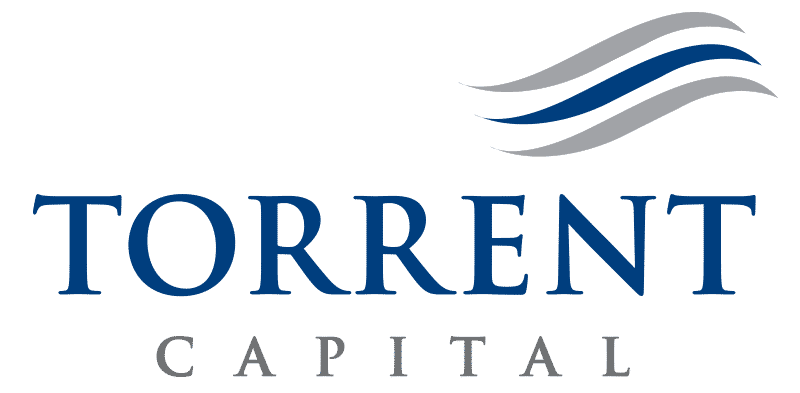This article is authored by Scott Gardner, CIO of Torrent Capital
At Torrent, we see tremendous value in some overlooked technology companies listed on the Canadian public market. There is world-class talent and technology up North that trades at a fraction to comparable stories on the US exchanges or in the private equity market. For a fund focused on the Canadian small cap public market, depressed liquidity and a general lack of interest can be frustrating at times, but it ultimately enables us to buy quality companies that trade at a fraction of their intrinsic value.
There are varying opinions as to why a slew of Canadian small cap technology stocks are orphaned up North and what will cause this trend to reverse. In our opinion, it has been primarily driven by the explosion of private equity related investments and the corresponding outflow of capital from the public market. Regulators have pushed investors and executives from the exchanges by inflating costs, reporting requirements and potential liability, or said differently, from the light into the dark. In the darkness creatures await, with VC funds ready to charge you exorbitant fees, horrible liquidity, limited transparency, whacky pricing, and gamed valuations. This dislocation of capital will ultimately end badly, so accordingly, we spend most of our time out in the light and scoop up Canadian public companies that trade at a significant discount to what they would in a normalized market.
Case in point, kneat.com, inc. (KSI.V), which is a key holding of the fund and one that we have been adding to as the company executes on its business plan.
kneat.com, inc. (Kneat or KSI) is an Ireland-based software company listed in Canada, which develops and markets the Kneat Gx software platform. Kneat Gx is an on-premise or cloud hosted software offering that is purpose-built to digitize complex validation processes for regulated manufacturers in various life science focused industries such as pharma, biotech and medical devices.
Kneat offers a compelling and novel value proposition to highly regulated companies by completely digitizing their validation life cycle, which translates directly to increased productivity, quality of reporting and improved compliance with regulators; all serving to improve a given company’s profitability.
The validation lifecycle typically involves a multitude of business departments, equipment manufacturers, engineers, quality control personnel, consultants, suppliers, contractors; all at various locations. Each component of the process needs to be documented, authorized and updated to ensure that the final product is both safe and meets its intended use. This information needs to be provided to the regulator, such as the FDA, on an ongoing and timely basis. Historically, lifecycle management has been very inefficient given that it has been a manual, paper-based process. Each step in the validation cycle required the creation, collection, authorization, dissemination and storage of countless forms involving many individuals, departments, third-party contractors and various suppliers. Clearly, this archaic approach could lead to incompliance with regulators, higher cycle times, a misallocation of resources, manufacturing downtime; and at worst, a faulty final product. Kneat Gx provides a streamlined digital alternative, offering real-time validation, visibility and unmatched integrity of systems and data.
There are few, if any, competing products for the Kneat’s Gx software platform and there are sizeable barriers to entry for those looking to compete with the company. Kneat Gx has been in development for close to 10 years and purpose-built by a team with deep domain knowledge. The founders of Kneat had worked for well-known life sciences companies in project engineering, software development and R&D; which was the genesis for Kneat Gx, as they recognized the inefficiencies inherent in paper-based validation lifecycle management. In addition, Kneat’s target market is dominated by multinational, well-known pharmaceutical, biotech and medical device manufacturers. The sales cycle with these organizations is long and involved given the complexity, social responsibility, and business critical nature of their reporting and manufacturing processes.
Since the initial complete and tested model rolled out in 2014, Kneat Gx is now used by some of the world’s leading life sciences companies, and we believe that the company is on the cusp of a rapid growth phase. KSI’s client base is now comprised of seven (7) Tier 1 biotech and pharmaceutical companies. In the past 18 months, KSI has signed a total of 10 customers, and its presence on manufacturing sites has grown from 15 locations to upwards of 350. Additionally, the company announced in September that it secured a three-year contract with one of the largest pharmaceutical companies in the world, which is further indication the business model is gaining traction. Kneat is unable to mention their clients by name given the desire to control their brand; however, analysts have speculated that the roster could include the likes of Pfizer, GSK and Johnson and Johnson, among others. For a small cap software company to be supporting names of this pedigree, especially given the business-critical element of the Kneat Gx offering, is a huge vote of confidence for the company and its technology. As these underlying relationships become better known in the marketplace, we believe that it will fuel referrals and serve to significantly de-risk the Kneat Gx offering for those companies exploring its adoption.
These recent business wins are contributing to an impressive growth profile for KSI. Analysts from Mackie Research Capital and Echelon Wealth Partners have 2020 annual revenue growth estimates of 213% and 240%, respectfully. This compares to consensus estimates of 20% growth for US software companies and 15% for Canadian names over the same period. While estimates are clearly just that, estimates, we do have confidence in the KSI forecasts because they are largely based on further adoption of Kneat Gx within the company’s existing book of clients. Should their clientele continue to scale across their total potential install base of 350+ sites, it is estimated that this represents the potential for annual recurring revenue of ~C$40Mil over the next 3-5 years. We view the initial adoption of Kneat Gx as the largest hurdle in the sales process and believe that the scaling of the product across their client’s operations could serve as an inflection point for the company. It is worth underscoring that these revenue growth estimates are predominantly based on existing clients, and do not factor in the optionality of further client adds, which we also view as likely given that the company can now leverage off of the quality of their Tier 1 book of clients in its sales process. In our opinion, there is room for Kneat to beat revenue targets on the upside as the company gains traction.
Considering the potential for exponential growth in recurring revenue with industry leading clients, the sizeable barriers to entry and the novelty of the Kneat GX platform, we would expect KSI to trade at a healthy premium to the market, however, that is not the case. KSI currently has an enterprise value of $C86Mil and this represents an EV/Revenue multiple of 9.2X based on average analyst revenue estimates in 2020 of ~9.3Mil. This multiple is in line with similar US and Canadian software companies that are growing at a far slower rate. It is also worth noting that Veeva Systems (VEEV.US), which has a similar SaaS offering to Kneat for CRM in the life sciences sector, trades at 16.3X 2020 revenue estimates, despite having what we consider a more generic product and slower growth prospects.
KSI has strong underlying financials with a clean share structure and balance sheet. KSI has negligible debt and roughly $7.5Mil in cash. There are 60 million basic shares outstanding, and 64 million on a fully diluted basis, meaning there is minimal overhang in terms of options and warrants. It is worth noting that these are publicly traded common shares with equal terms and voting rights, as opposed to the slew of structured notes, convertibles, preferreds and other creative forms of financing that are prevalent with many early-stage tech companies. Let alone the funky non-fungible rounds of financing that are commonplace in the private equity market, that are illiquid and priced by financial wizardry.
In summary, we see many underappreciated small cap opportunities in the Canadian public market. We are confident that over time, money flows and corporate activity will return the space. This may come in the form of a private equity related washout, as investors wise up to the gamesmanship going on there and/or there is a liquidity crunch as they demand their money back. Or, equally likely, it may be driven by companies like Kneat, which as they execute on their business plans or become attractive as potential acquisition targets, will make it hard for investors to ignore the Canadian public market for long.
Until then, we will look to add to our key positions and aim to uncover additional stories at discounted levels.


